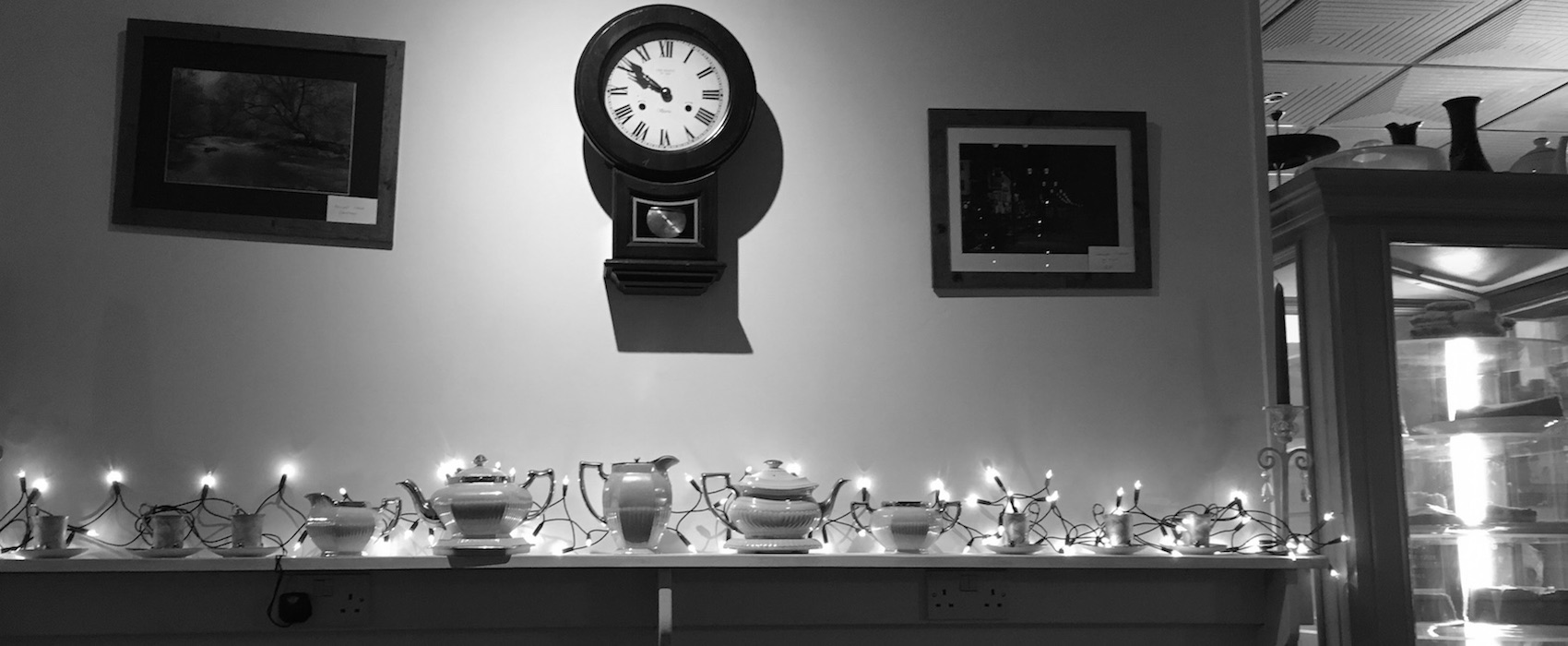Some of my work involves me going to visit a variety of towns in England to get a picture of what it’s like to live there. An important part of it is scoping out the cafes and coffee shops, the places where people gather, meet and talk. This last trip was to Sidmouth and I found myself a spot on a leather sofa in the corner, where I was eventually joined by a woman and her three crumb-seeking dogs. We chatted briefly about the town while her dogs watched intently as I ate the cake I had bought for lunch.
There were three women, one with her grandchildren who were sitting catching up about their families over cups of coffee, the rest of the people who came in were either regulars or visitors to the town. It’s often when I visit these smaller communities that I get a real sense of the function of a cafe. That’s not to say that there’s no community in the cafes I go to in London, but the individualisation, the sense that people either go on their own and work on their computers, or with their friends present themselves as a closed group.
On the train from London Lou had texted me saying how she was looking for something more than “all these artisanal fancy pants places” with the “painfully thought through distressed wooden tables”. As she said, it’s not that we don’t need good coffee, but that’s not the point, the point is what goes on there.
While I was in the cafe I spoke to Chris who told me he was reading about shoes, one aspect of his exploration being the connection between the word for clog “sabots” and “sabotage”. It is sometimes said that some workers used to throw their “sabots” in the machines to break them. He went on to talk about his trip to Berlin and how his friend had said to him that she had “had it” with the city and its achingly trendy bars. Berlin was a city that early on really did emerge out of devastation and brokenness – I remember bars in old hoover showrooms, art galleries in disused factories. When I went there with Mark there two years ago, there were still places that felt vibrant and connected, but in some districts the style had become more deliberate and studied, the DIY feel had gone. And there were still areas that remained poor and troubled.
We talked about Detroit and the questions I had about what was emerging there… It’s not that cafes and restaurants aren’t important – sub cultural spaces where people can gather and feel they are part of something bigger are valuable. But as I wrote earlier, they aren’t THE point. Thinking about Detroit, it seems that while the city epitomises the end of the American dream, it wasn’t the case that everything that was flourishing was “post capitalist” some of it was a reconfigured, weaker version of capitalism. I’m sure, too, that there are people asking deeper questions about what kind of world they want to build. This questioning about what we want out of life together is vital, because as Berlin shows, we need more than cool coffee bars and distressed wood.

Leave a Reply
You must be logged in to post a comment.